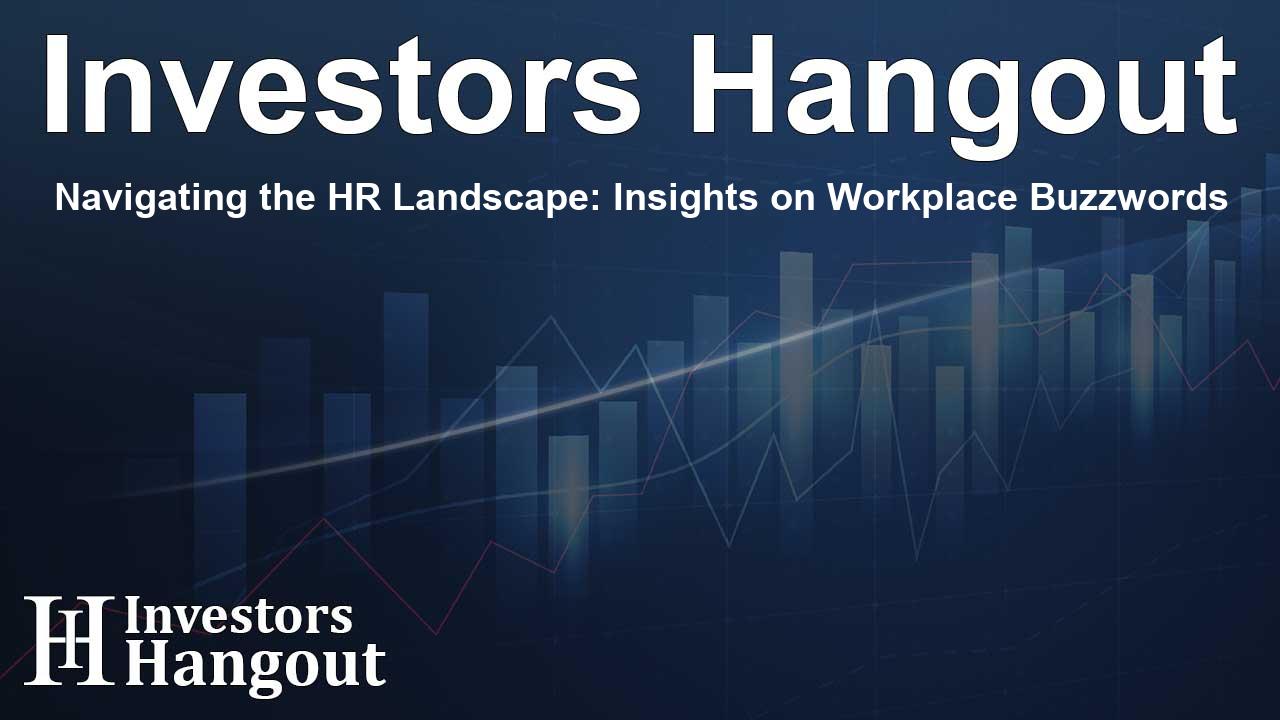Navigating the HR Landscape: Insights on Workplace Buzzwords

Understanding Buzzwords in HR
Global HR research and advisory firm McLean & Company provides valuable insights into the buzzwords dominating the workplace, emphasizing the importance of understanding these terms rather than reacting impulsively.
As buzzwords proliferate, from 'quiet quitting' to 'bare minimum Mondays,' HR leaders are inundated with terminology that can be enlightening, confusing, or even misleading. McLean & Company's latest report, titled Buzzwords: Helpful or Harmful?, examines how these phrases emerge, what drives their usage, and how HR professionals can navigate the complexities to identify genuine employee needs.
The Impact of Buzzwords on Organizational Culture
The report argues that buzzwords are not inherently positive or negative; instead, they symbolize cultural shifts and complex workplace dynamics that often reflect underlying challenges such as disengagement, shifting expectations, and lingering issues. While certain buzzwords can spotlight critical concerns, others may oversimplify matters, detracting from effective communication and eroding trust within teams.
"Buzzwords may sound trendy, but they often point to something deeper – real frustrations, unmet needs, or changing workforce norms," says Grace Ewles, director, HR Research & Advisory Services at McLean & Company. "When HR teams chase the trend without examining the context, they risk missing the opportunity to understand and address the root causes."
Insights from McLean & Company's Research
This comprehensive research provides an in-depth look at common workplace buzzwords and their implications. The following are key takeaways:
- Buzzwords Often Replicate Existing Issues: Many buzzwords serve as new labels for ongoing problems. For instance, 'quiet quitting' is reminiscent of job-hopping, while 'grumpy staying' captures disengagement in a more emotional context.
- Amplification Through Media: Buzzwords now gain traction via social media and digital platforms, leading to rapid spread and sometimes distorted meanings, guided by algorithms favoring engaging and emotionally charged content.
- Cautious Reception from HR Professionals: A recent LinkedIn poll indicated that only 6% of HR professionals felt excited upon encountering new buzzwords. The majority expressed caution (52%) or disinterest (39%), highlighting skepticism towards terms that tend to oversimplify complex issues.
- Potential for Misguided Actions: Organizations may risk launching initiatives based on trending terms without contextual understanding, which can lead to poor outcomes, increased skepticism, and a deepening of existing problems.
- Communication Breakdown Risks: Misunderstood buzzwords can create generational divides and reinforce negative stereotypes, particularly when assumptions are made about their relevance solely to younger employees.
"Buzzwords should be perceived as clues, and not conclusions," explains Ewles. "They can be starting points for deeper conversations if HR steps into the role of translator and strategic partner, examining the terminology's context and guiding organizations in thoughtful responses."
Implementing the PAUSE Framework
McLean & Company recommends the PAUSE framework to help HR leaders evaluate emerging buzzwords effectively:
- Pause: Before reacting to a new term, take a moment to reflect.
- Analyze: Investigate the term's origins, media portrayal, and underlying drivers.
- Understand: Consider how the buzzword relates to the organization’s strategy and values.
- Strategize: Decide if monitoring, reinforcing, or initiating action is necessary.
- Educate: Ensure key personnel are informed to reduce misinterpretations.
By employing the PAUSE framework, HR professionals can foster a collaborative approach that mitigates impulsive decisions, guiding organizations toward well-considered responses.
Practical Tools for HR Leaders
To assist HR leaders in identifying and addressing real organizational challenges behind buzzwords, McLean & Company offers various practical tools, including diagnostics and workshops aimed at enhancing HR capabilities and workplace culture.
Frequently Asked Questions
What is the purpose of examining buzzwords in HR?
The aim is to decode workplace terminology to better understand employee needs, enhance communication, and guide effective organizational responses.
How can HR professionals assess the impact of buzzwords?
Using the PAUSE framework, HR teams can pause and analyze buzzwords' origins, implications, and relevance to their organization's strategies.
Why do buzzwords sometimes create skepticism among HR professionals?
Many HR professionals feel that buzzwords oversimplify complex workplace issues, leading to cautious and sometimes disinterested reactions.
How can buzzwords be beneficial?
When recognized as indicators of deeper workplace issues, buzzwords can initiate important conversations about culture and employee experiences.
What tools does McLean & Company offer for HR leaders?
The firm provides various diagnostic tools and workshops designed to help HR professionals tackle real challenges and improve workplace culture.
About The Author
Contact Dominic Sanders privately here. Or send an email with ATTN: Dominic Sanders as the subject to contact@investorshangout.com.
About Investors Hangout
Investors Hangout is a leading online stock forum for financial discussion and learning, offering a wide range of free tools and resources. It draws in traders of all levels, who exchange market knowledge, investigate trading tactics, and keep an eye on industry developments in real time. Featuring financial articles, stock message boards, quotes, charts, company profiles, and live news updates. Through cooperative learning and a wealth of informational resources, it helps users from novices creating their first portfolios to experts honing their techniques. Join Investors Hangout today: https://investorshangout.com/
The content of this article is based on factual, publicly available information and does not represent legal, financial, or investment advice. Investors Hangout does not offer financial advice, and the author is not a licensed financial advisor. Consult a qualified advisor before making any financial or investment decisions based on this article. This article should not be considered advice to purchase, sell, or hold any securities or other investments. If any of the material provided here is inaccurate, please contact us for corrections.
